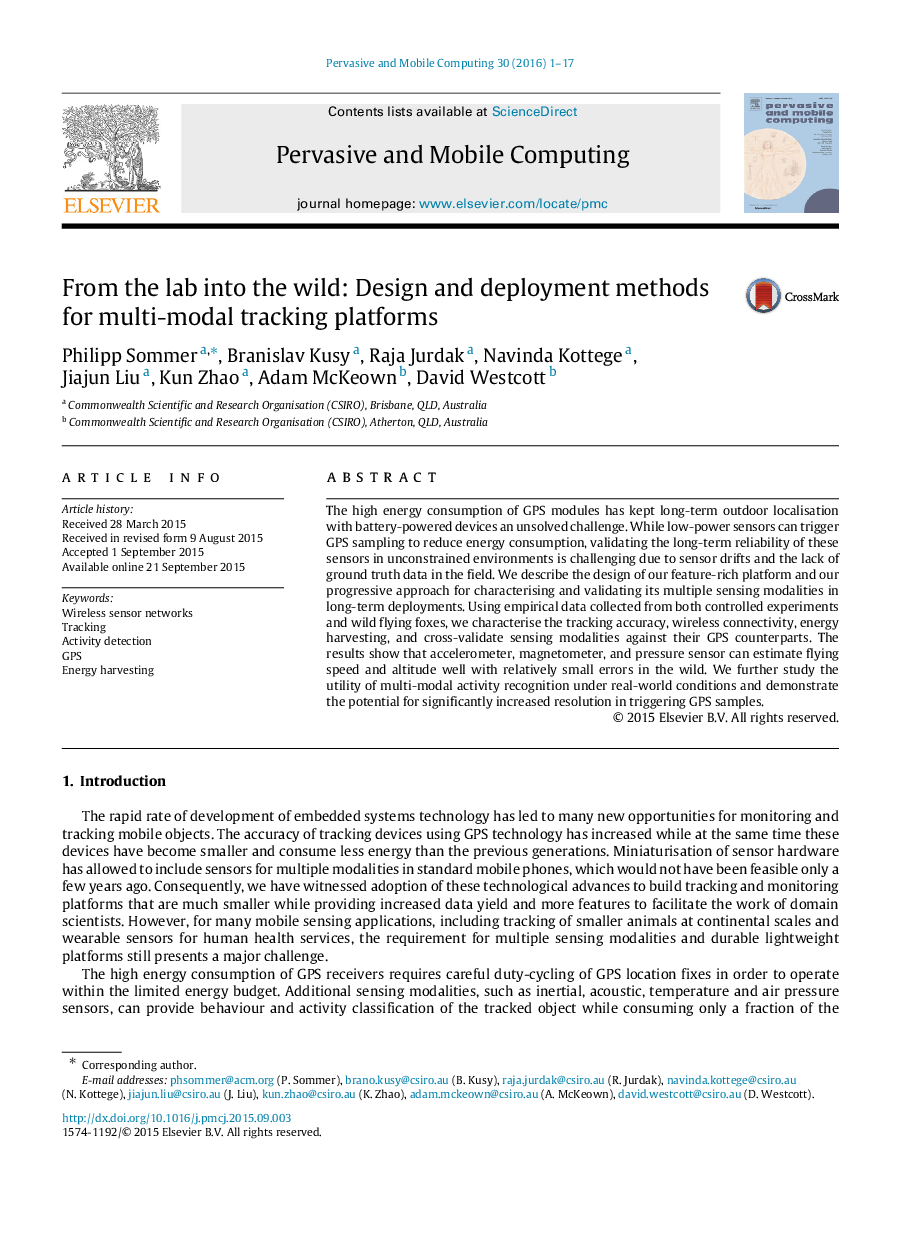| Article ID | Journal | Published Year | Pages | File Type |
|---|---|---|---|---|
| 463736 | Pervasive and Mobile Computing | 2016 | 17 Pages |
The high energy consumption of GPS modules has kept long-term outdoor localisation with battery-powered devices an unsolved challenge. While low-power sensors can trigger GPS sampling to reduce energy consumption, validating the long-term reliability of these sensors in unconstrained environments is challenging due to sensor drifts and the lack of ground truth data in the field. We describe the design of our feature-rich platform and our progressive approach for characterising and validating its multiple sensing modalities in long-term deployments. Using empirical data collected from both controlled experiments and wild flying foxes, we characterise the tracking accuracy, wireless connectivity, energy harvesting, and cross-validate sensing modalities against their GPS counterparts. The results show that accelerometer, magnetometer, and pressure sensor can estimate flying speed and altitude well with relatively small errors in the wild. We further study the utility of multi-modal activity recognition under real-world conditions and demonstrate the potential for significantly increased resolution in triggering GPS samples.
